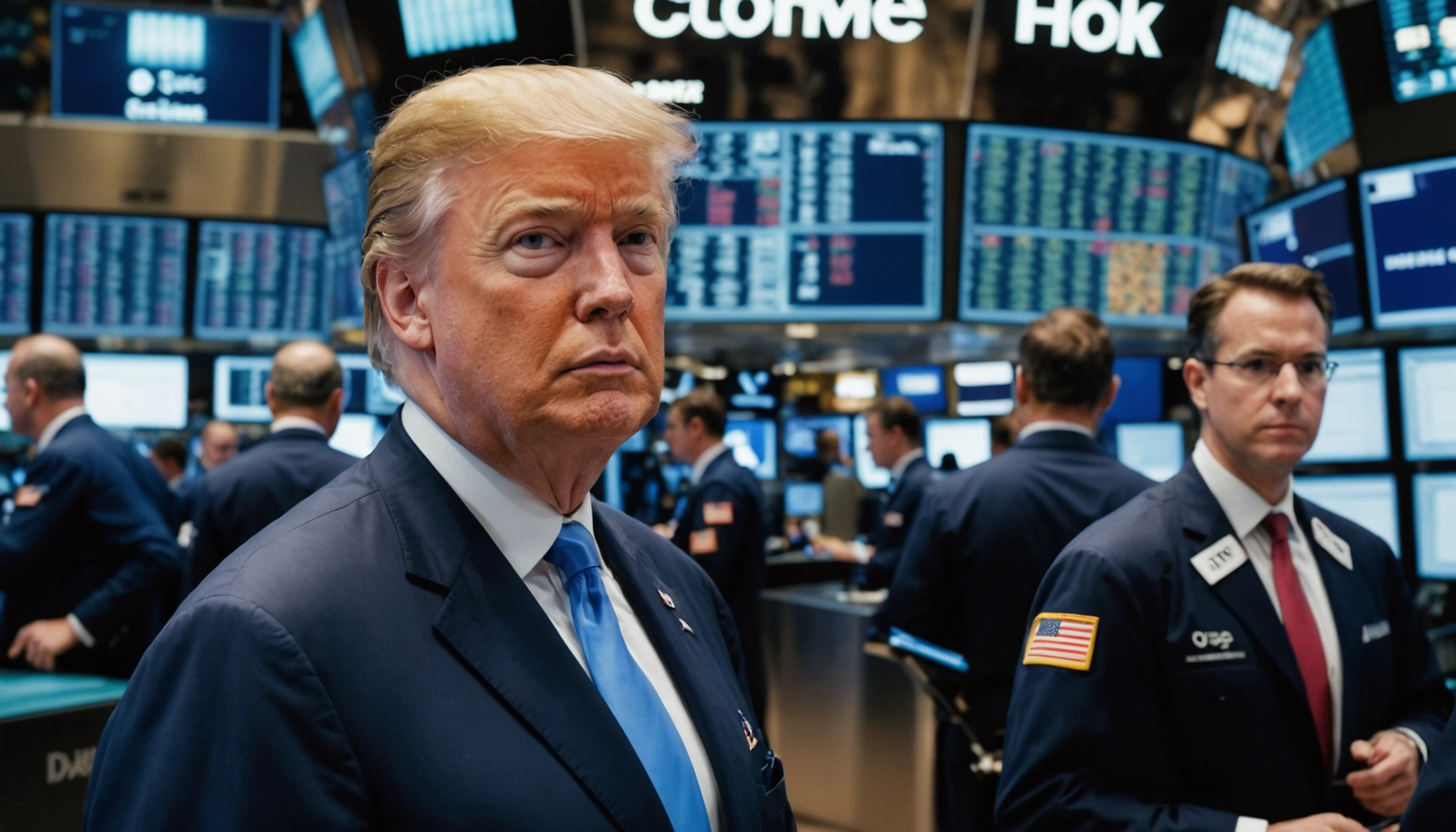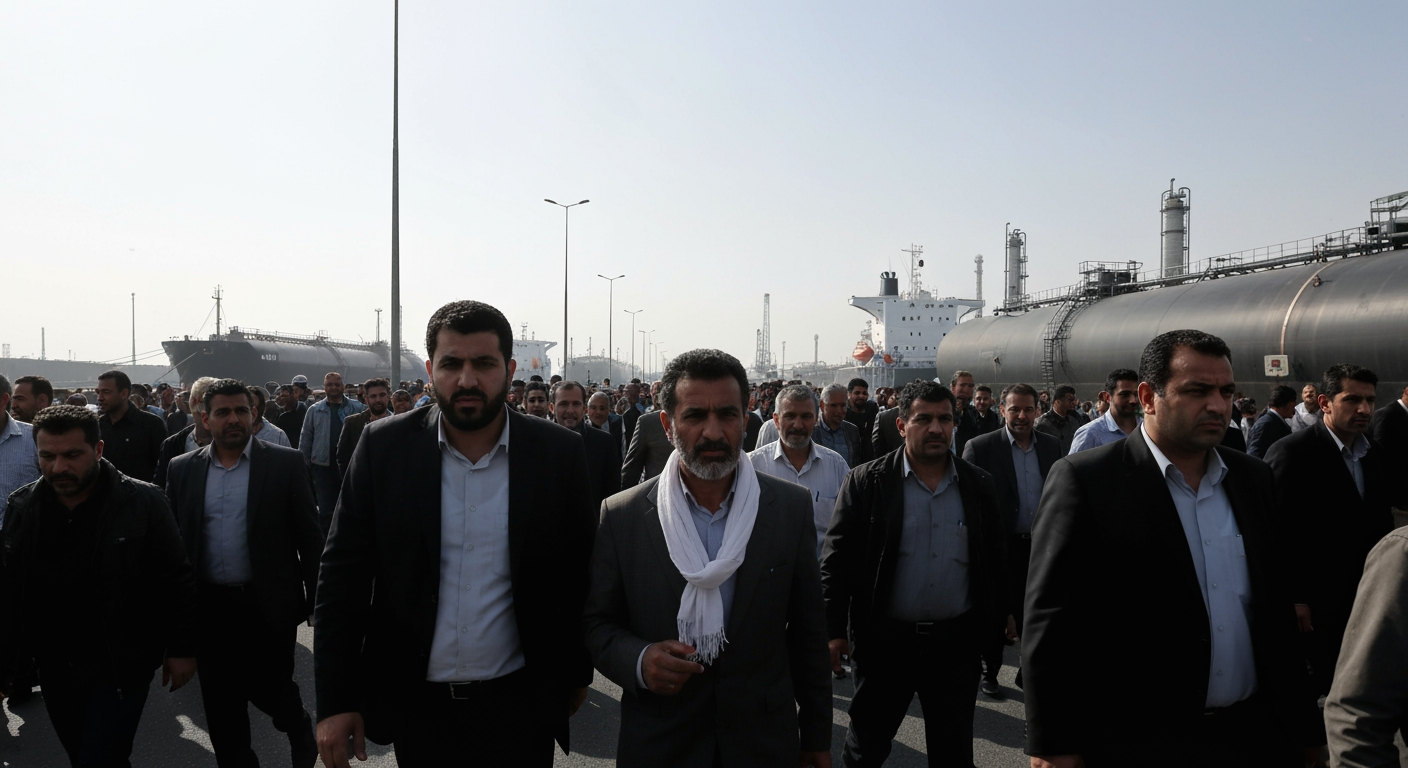Global Stocks Plunge as Trump Tariffs Fuel Recession Fears

Global stock markets are in a tailspin Monday as investors react to President Trump's sweeping tariffs on imports, sparking fears of a global trade war and a potential economic recession. The sell-off, which began last week, accelerated overnight as Asian markets opened, with losses spreading to Europe and threatening to continue into the U.S. trading day.
Asian Markets Lead the Decline
The most dramatic declines were seen in Asia. Hong Kong's Hang Seng index plunged more than 10%, marking its steepest single-day decline in nearly three decades. Japan's Nikkei 225 index fell almost 8%, wiping out gains made over the past year and a half. South Korea's KOSPI fell more than 5%, and Australia's ASX 200 closed down more than 4%. The Korean won also weakened significantly against the dollar.
Analysts attribute the sharp declines to investor panic over the potential impact of the tariffs on global trade and economic growth. The tariffs, which went into effect Sunday, include a 10% baseline tariff on all imports to the U.S., with steeper duties of between 11% and 50% set to take effect against dozens of countries on Wednesday. China, the U.S.'s main strategic rival and its third-largest trading partner, is facing a 34% tariff. The European Union, Japan, and South Korea are bracing for tariffs of between 20% and 25%.
Trump Defends Tariffs as "Medicine"
Despite the market turmoil, President Trump is defending his administration's decision to impose the tariffs, likening them to "medicine" needed to fix what he sees as unfair trade practices by other countries. Speaking to reporters on Air Force One, Trump said he had spoken with many foreign leaders over the weekend who were "dying to make a deal." He insisted that the U.S. would no longer tolerate trade deficits, stating, "We're going to have surpluses or, at worst, going to be breaking even."
Trump's stance suggests he is unlikely to back down from the tariffs, even in the face of mounting economic pressure. This has heightened concerns among investors that a trade war could escalate, further damaging global economic prospects.
Recession Fears on the Rise
The market sell-off has intensified fears of a potential global recession. Investment banks are increasing their estimates of a U.S. recession within the next 12 months. Billionaire investor Bill Ackman, who previously supported Trump, is now urging a 90-day pause on the tariffs, warning of an economic disaster.
The tariffs are expected to disrupt global supply chains, raise prices for consumers, and reduce corporate profits. Companies that rely heavily on international trade are particularly vulnerable. The uncertainty surrounding the trade situation is also likely to dampen business investment and consumer spending, further slowing economic growth.
International Response and Potential Retaliation
The tariffs have been met with strong criticism from other countries, with some accusing the U.S. of protectionism and violating international trade rules. China has already announced retaliatory tariffs on U.S. goods, matching the tariffs proposed by President Trump. The European Union is also considering retaliatory measures.
Germany has condemned the U.S. tariffs as "nonsense," and European trade officials are meeting to discuss a coordinated response. The prospect of a tit-for-tat trade war between the world's largest economies has further unnerved investors and contributed to the market sell-off.
Uncertainty Looms
The global economic outlook remains highly uncertain as the trade dispute between the U.S. and its trading partners continues to escalate. The extent of the damage to the global economy will depend on how long the tariffs remain in place and whether other countries retaliate with their own trade barriers.
While President Trump insists that the tariffs are necessary to protect American jobs and businesses, many economists warn that they could ultimately backfire, leading to slower economic growth, higher inflation, and job losses. The coming weeks and months will be crucial in determining the long-term impact of the tariffs on the global economy.
Sources
Related Articles

Global Oil Markets Brace for Turbulence as Iran Conflict Threatens $100-a-Barrel Threshold
LONDON - Global oil markets are teetering on the brink of significant upheaval following recent escalations in the Middle East, raising concerns that crude prices could surge past $100 per barrel. The immediate aftermath of reported US-Israeli strikes on Iran and subsequent retaliatory actions by Tehran has already sent shockwaves through energy trading, with analysts warning that prolonged conflict, particularly any disruption to the vital Strait of Hormuz, could trigger a substantial and sustained price rally, impacting economies worldwide. On Friday, Brent crude futures were trading around $72.48 to $73 per barrel, while West Texas Intermediate (WTI) crude oil prices stood at approximately $67 per barrel

Russia's Enduring Nuclear Grip: A Geopolitical Lever Beyond Oil and Gas
While global attention frequently fixates on Russia's vast oil and gas reserves as instruments of geopolitical influence, a quieter, yet equally potent, form of leverage persists within its nuclear energy sector. Through its state-owned atomic energy corporation, Rosatom, Russia has cultivated deep-seated dependencies across the world, extending far beyond fossil fuel exports

Pentagon Demands Unfettered AI Access from Anthropic, Citing National Security Imperative
Washington D.C. — A high-stakes confrontation is unfolding between the U.S. Department of Defense and leading artificial intelligence firm Anthropic, as the Pentagon pressures the company to relinquish control over how its powerful Claude AI model can be used for military purposes